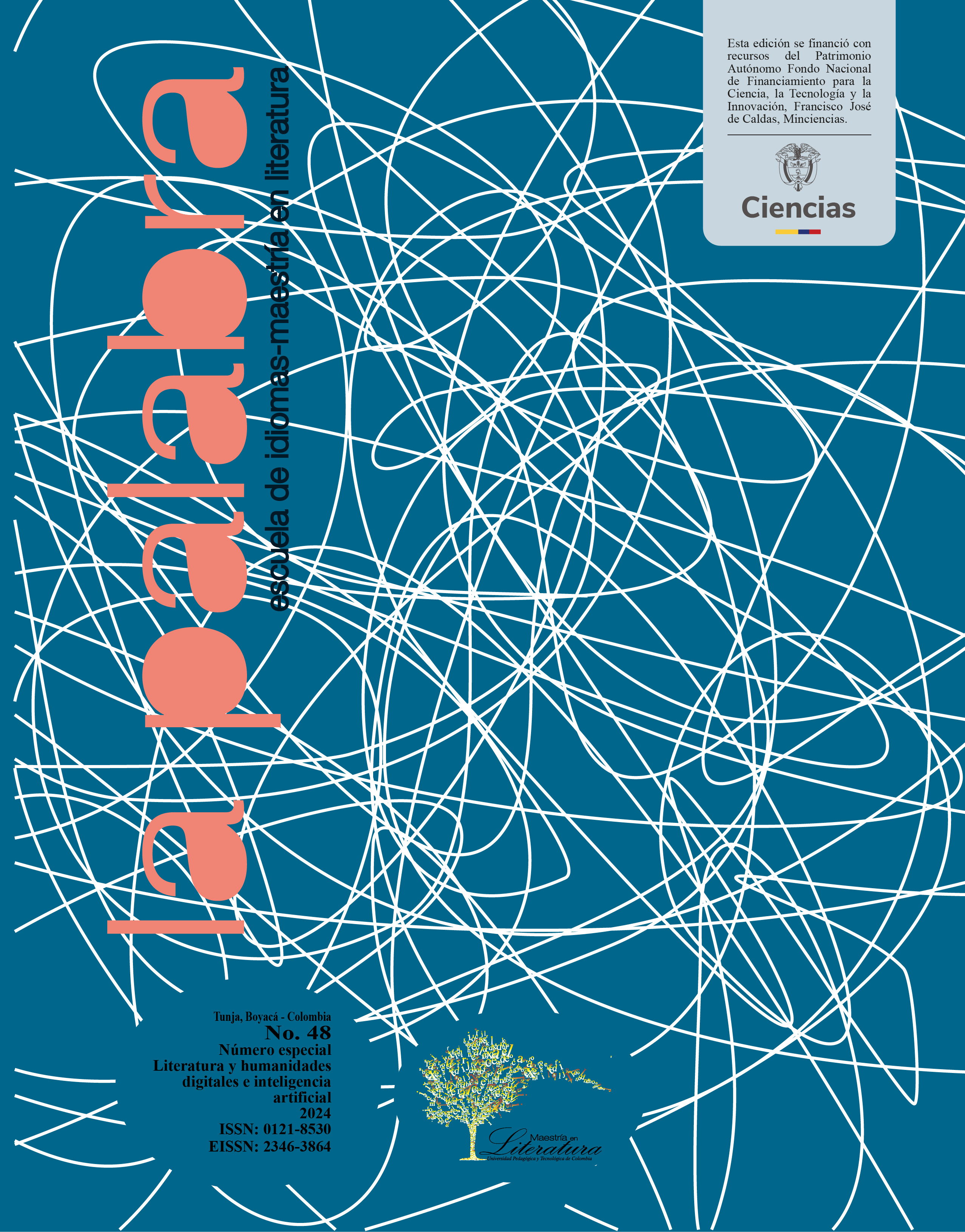Childhoods on the Roblox Gaming Platform: Transformations and Continuities in Ways of Playing and Being a Child

Abstract
Informed by theoretical and methodological frameworks from Latin American cultural studies of childhood, digital humanities, and digital platform studies, this analysis examines the techno-discursive formations that shape and reshape conceptions of childhood within video game environments. Beginning with a concise overview of cultural studies of childhood in Latin America, digital humanities, digital discourse analysis, and platform studies, it establishes the groundwork for exploring the techno-discourses circulating through video games. Focusing on the experiences of children and adolescents in digital contexts and drawing on examples from TikTok and YouTube, the discussion then moves to the Roblox gaming platform as a key site for investigating how children participate in constructing the meanings of being a child online. Through this lens, it becomes possible to trace both the transformations and continuities in prevailing understandings of childhood that emerge within these digital spaces.
Keywords
childhood, discursive digital analysis, videogames, digital humanities
References
- Antunes, Amanda, e Renata Tomaz. “A sociabilidade automatizada das crianças brasileiras nas redes sociais”. DESidades, vol. 17, 2017, pp. 35-46. Web. 10 de agosto de 2024. https://desidades.ufrj.br/open_space/a-sociabilidade-automatizada-das-criancas-brasileiras-nas-redes-sociais/
- Buyuk, Hamdi Firat. “Turkey Blocks Access to Popular Online Game Platform Roblox”. Balkan Insight. 8 de agosto de 2024. Web. 10 de agosto de 2024. www.balkaninsight.com/2024/08/08/turkey-blocks-access-to-popular-online-game-platform-roblox/
- Callaway, Elizabeth, et al. “The Push and Pull of Digital Humanities. Topic Modeling the What is digital humanities?” Genre: Digital Humanities Quarterly, vol. 14, núm. 1, 2020. Web. 2 de agosto de 2024. https://www.digitalhumanities.org/dhq/vol/14/1/000450/000450.html
- Carville, Olivia, e Cecilia D’Anastacio. “Roblox Is Fighting to Keep Pedophiles Away and Not Always Winning”. Bloomberg, 23 de julho de 2024. Web. 9 de agosto de 2024. www.bloomberg.com/features/2024-roblox-pedophile-problem/
- Chess, Shira. Play like a Feminist. The Mit Press, 2020. Impresso. https://doi.org/10.7551/mitpress/12484.001.0001 DOI: https://doi.org/10.7551/mitpress/12484.001.0001
- Comitê Gestor da Internet no Brasil. Pesquisa sobre o uso da internet por crianças e adolescentes no Brasil: TIC kids online Brasil 2018. 5 de novembro de 2019. Web. 12 de agosto de 2024. https://cetic.br/publicacao/pesquisa-sobre-o-uso-da-internet-por-criancas-e-adolescentes-no-brasil-tic-kids-online-brasil-2018/
- D’Andrea, Carlos. Pesquisando Plataformas Online: Conceitos e Métodos. EDUFBA, 2020. Impresso.
- Esposito, Nicolas. “A Short and Simple Definition of What a Videogame Is.” Digital Games Research Association Conference, vol. 3, 2005. Web. 20 de novembro de 2023. https://www.utc.fr/~nesposit/publications/esposito2005definition.pdf
- Godoy, Carolina. “Día mundial del gamer: Roblox es el videojuego favorito del 51% de niñas entre 6 y 12 años en Chile en 2022”. ANDA, 26 de agosto de 2022. Web. 10 de setembro de 2024. www.anda.cl/dia-mundial-del-gamer-roblox-es-el-videojuego-favorito-del-51-de-ninas-entre-6-y-12-anos-en-chile-en-2022/
- Higonnet, Anne. Pictures of Innocence: The History and Crisis of Ideal Childhood. Thames and Hudson, 1998. Impresso.
- Josiowicz, Alejandra, e Irasema Coronado. Children Crossing Borders. Latin American Migrant Childhoods. The University of Arizona Press, 2022. Impresso.
- Kalantzis, Mary, et al. Literacies. Cambridge University Press, 2016. Impresso. https://doi.org/10.1017/9781316442821 DOI: https://doi.org/10.1017/9781316442821
- Kellner, Douglas. “Educação para a leitura crítica da mídia, democracia radical e a reconstrução da educação”. Educação e Sociedade, vol. 29, núm. 104, 2008, pp. 687-715. Web. 10 de agosto de 2024. https://doi.org/10.1590/S0101-73302008000300004 DOI: https://doi.org/10.1590/S0101-73302008000300004
- Lenhart, Amanda e, Kellie Owens. The unseen teen: The challenges of building healthy tech for young people. Data & Society, 2021. Impresso.
- Lionetti, Lucía. La historia de las infancias en América Latina. Universidad Nacional de Centro de la Provincia de Buenos Aires, 2018. Impresso.
- Minecraft. “Multiplataforma”. Mojang Studios, 2024. Web. 11 de setembro de 2024. https://www.minecraft.net/pt-br
- Moretti, Franco. Patterns and Interpretation. Indiana University, 2017. Impreso.
- Ridley, Jane. The Hidden Dangers of Roblox for Kids: Bullying and Secret Spending”. New York Post, 23 de março de 2021. Web. 15 de julho de 2024. https://nypost.com/2021/03/23/the-hidden-dangers-of-roblox-for-kids-bullying-and-secret-spending/
- Roblox. “Multiplataforma”. Roblox Corporation, 2024. Web. 1 de agosto de 2024. https://www.roblox.com/pt
- Rojo, Roxane, e Jacqueline Barbosa. Hipermodernidade, multiletramentos e gêneros discursivos. Parábola, 2015. Impresso.
- Shliakhovchuk, Elena, e Adolfo Muñoz García. “Intercultural Perspective on Impact of Video Games on Players: Insights from a Systematic Review of Recent Literature”. Educational Sciences: Theory & Practice, vol. 20, núm. 1, 2020, pp. 40-58. Web. 23 de julho de 2024. https://jestp.com/menuscript/index.php/estp/article/view/806/717 DOI: https://doi.org/10.12738/jestp.2020.1.004
- Sioux Group, Go Gamers. “[PGB] Pesquisa Game Brasil 2024 - Tudo Sobre O Perfil Gamer”. Pesquisa Game Brasil, 2024. Web. 11 de setembro de 2024. www.pesquisagamebrasil.com.br/pt/
- Sistema de Información Cultural de la Argentina. “Encuesta Nacional de Consumos Culturales”. Ministério de Cultura. Presidencia de la Nación, 2024. SINCA. Web. 30 de setembro de 2024. https://encuestadeconsumo.sinca.gob.ar/indicadores/videojuegos/uso-de-videojuegos/0
- Qustodio. “Chapter 3: Gaming”. The Most Popular Gaming Apps in 2023. Born Connected Rise of the AI Generation. Annual Data Report. Web. 1 de julho de 2024. https://www.qustodio.com/en/born-connected-rise-of-the-ai-generation/gaming-qustodio-annual-data-report-2023/
- Underwood, Ted. “A Genealogy of Distant Reading”. Digital Humanities Quarterly, vol. 11, núm. 2, 2017. Web. 12 de agosto de 2024. https://www.digitalhumanities.org/dhq/vol/11/2/000317/000317.html
- Van Dijck, Jose, Thomas Poell e Martijn de Wall. The Platform Society: Public Values in a Connective World. Oxford Press, 2018. Impresso. https://doi.org/10.1093/oso/9780190889760.001.0001 DOI: https://doi.org/10.1093/oso/9780190889760.001.0001
- Zapiola, Carolina, Excluidos de la niñez. Menores, tutela estatal e instituciones de reforma. Buenos Aires, 1890-1930. Ediciones UNGS, 2019. Impresso
